We Love the Reef
While they only make up about one percent of the Earth’s surface, coral reefs are home to a quarter of all marine life. Unfortunately, the world’s reefs are dying. Over 50 percent of our reefs have died in the last 30 years.and Octinoxate
These two chemical sunscreen ingredients used by large sunscreen brands are thought to contribute to coral bleaching and death.
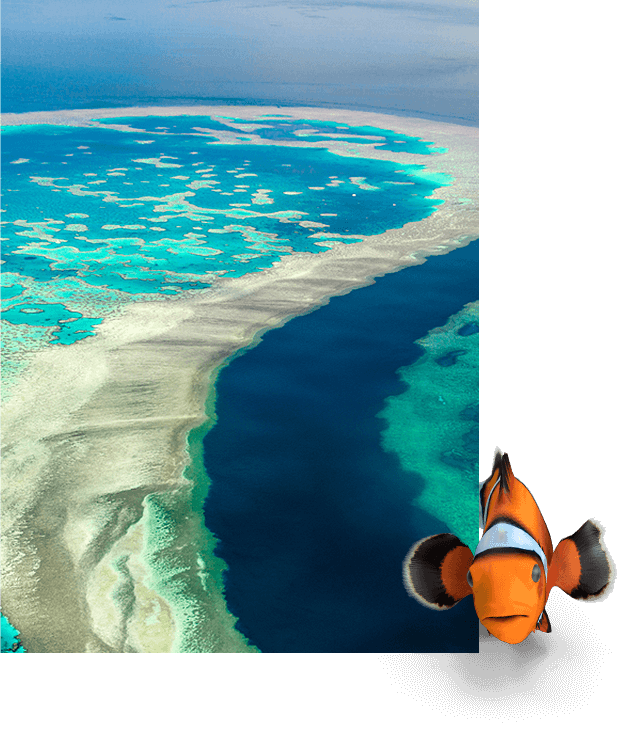
Delicate Coral Reefs Coral grows slowly — the fastest grow only six inches per year. It can take decades for a new reef to establish.
The formation of a new coral reef begins when a coral larva attaches to a submerged rock. The larva then forms a hard outer skeleton to support it. Algae grows into the coral, building a symbiotic relationship. The algae gives the coral nutrients in exchange for a place to live.
Australia’s Great Barrier Reef, the largest reef in the world, is thought to be nearly 8,000 years old!
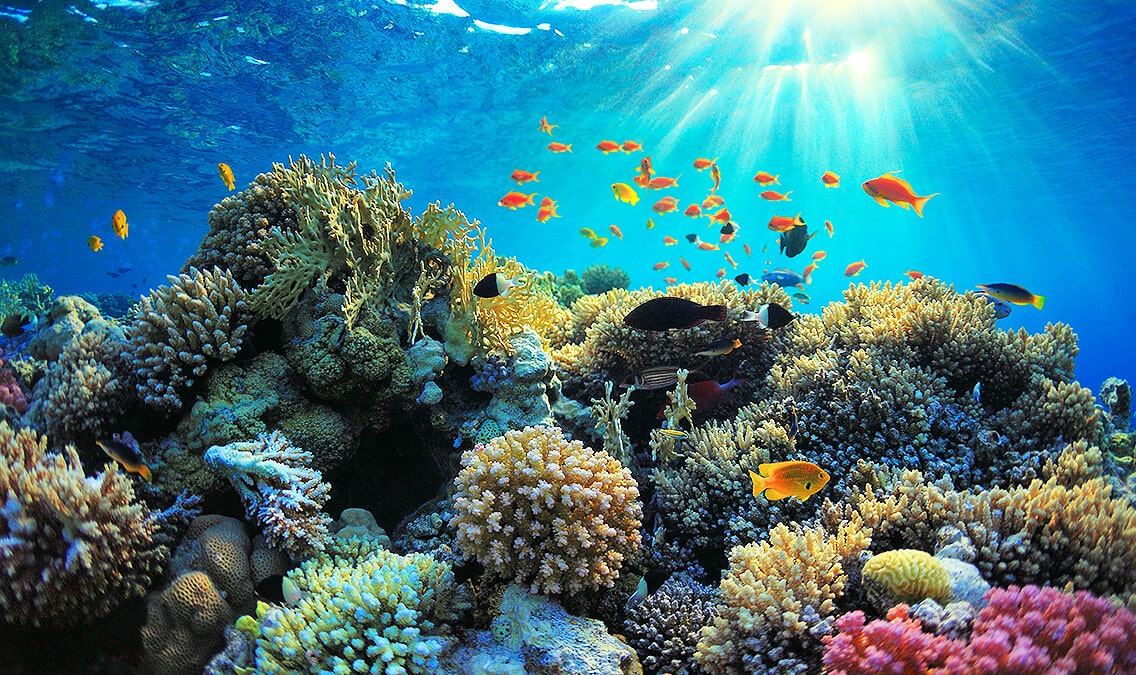
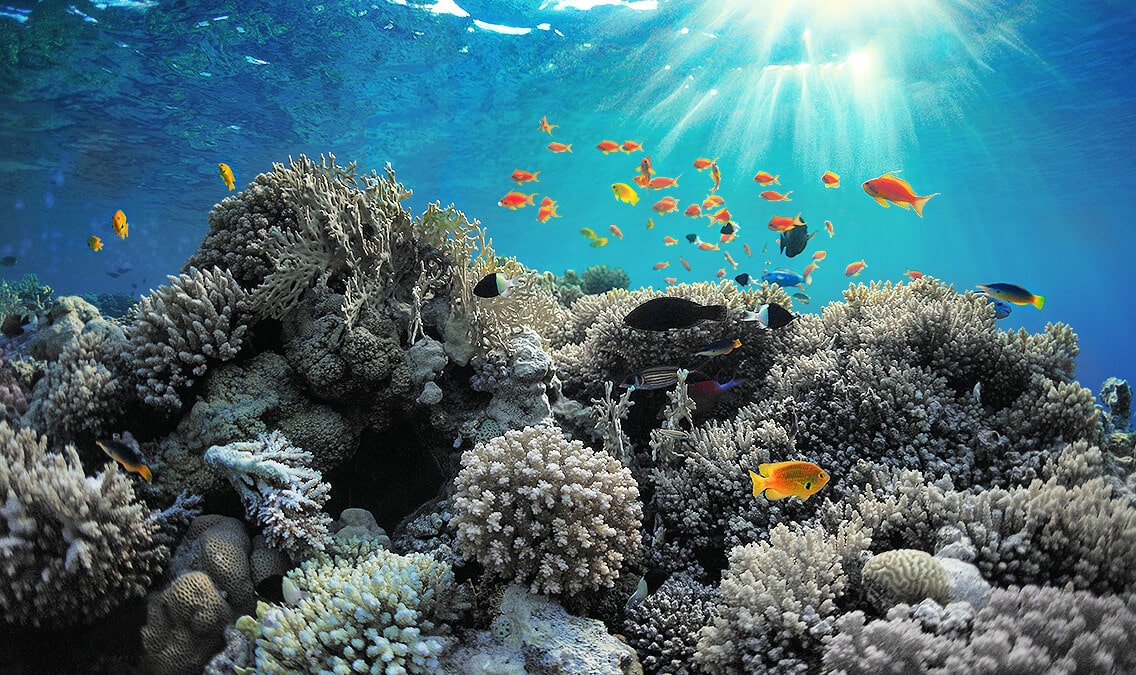
Coral bleaching occurs when coral becomes so stressed that it rejects its algae. Without the algae, the coral loses its main source of food and retreats within its bony shell. The coral is left with a white exterior, hence the term “bleaching.”
Rising or falling ocean temperatures can cause stress to coral. A temperature change of even a few degrees outside of the average is enough to cause some coral to bleach. However, Oxybenzone and Octinoxate may also contribute to coral bleaching and death.
Oxybenzone and Octinoxate are chemical active ingredients found in nearly 65 percent of all non-mineral sunscreens. These chemicals can agitate the coral’s immune system, causing it to bleach.
A Sea of Sunscreen
It is estimated that 4,000 - 6,000 tons of sunscreen chemicals enter coral reefs each year. That’s more than 60 million bottles of sunscreen!When you get into the ocean, some of the sunscreen you applied may wash off into the water, bringing whatever chemicals it contains with it. The sunscreen can also enter waterways when you wash off in the shower.
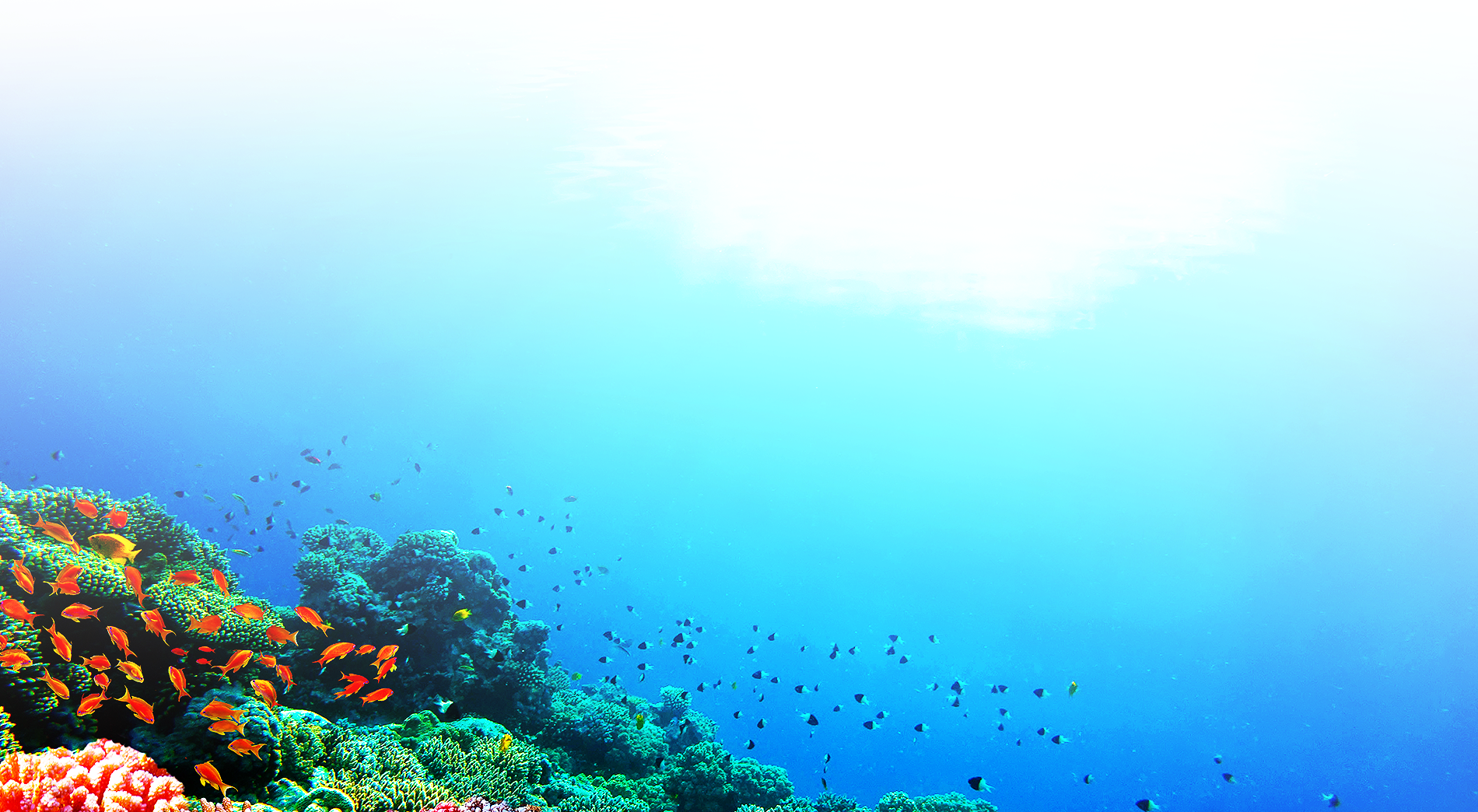
What is Reef-Safe Sunscreen
The waters around Hawaii contain staggering amounts of Oxybenzone—as much as
30 times greater than the
level considered safe for coral. Many of Hawaii’s most popular tourist beaches are also home to prominent coral
reefs. When beachgoers take a swim or even use showers near the beach, their sunscreens enter the water too.
Our “We Love the Reef” line of sunscreens was created to provide true broad spectrum protection with no Oxybenzone and no Octinoxate. We hope that by spreading awareness and creating products designed for your skin and for the environment, we can help the world’s coral reefs while staying sun safe.
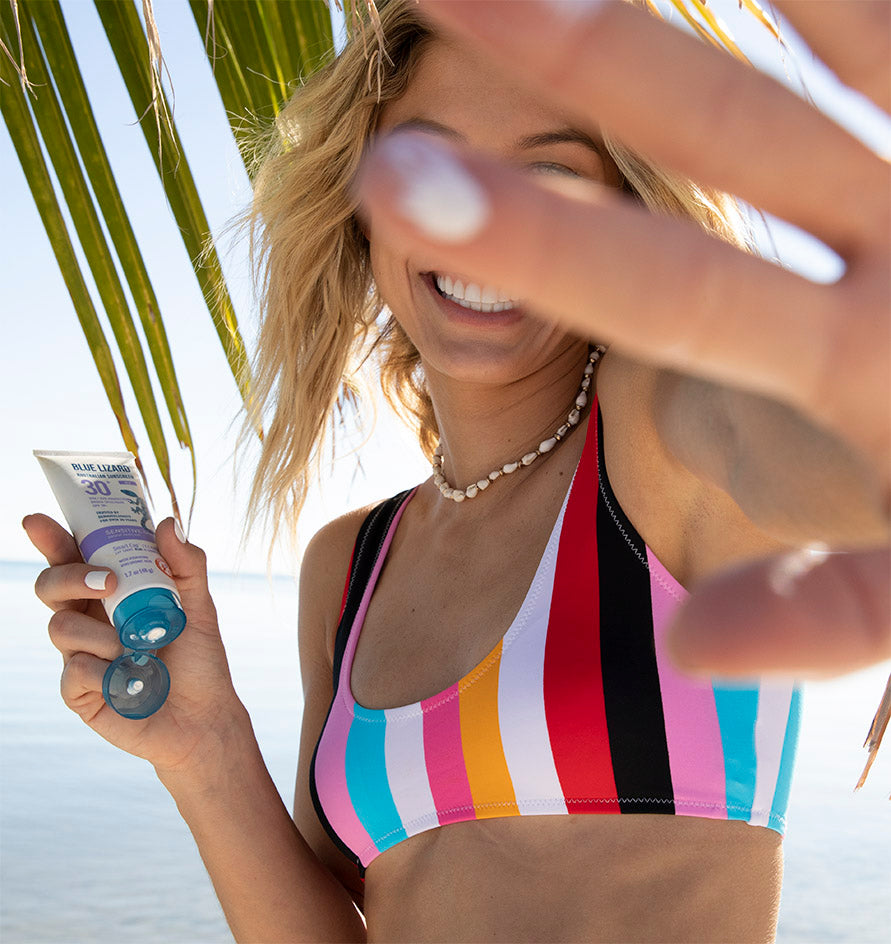
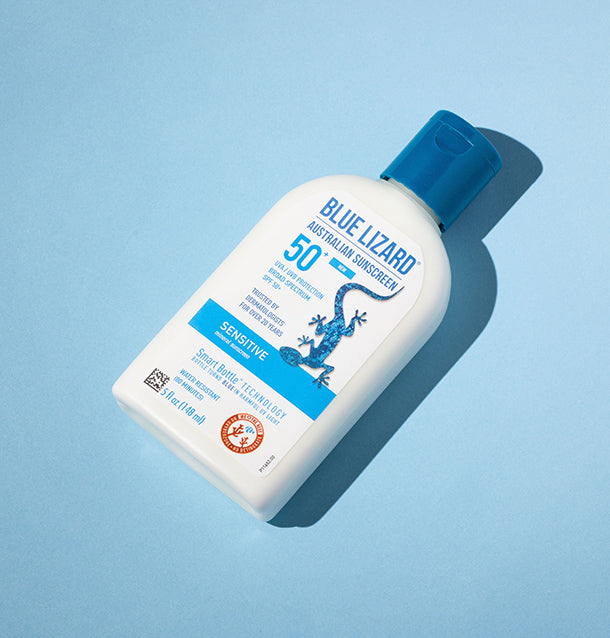
Checking sunscreen labels before buying is a small step we can all take to promote reef health. Look at the Drug Facts panel, under “Active Ingredients.” If Oxybenzone or Octinoxate are there, you know the sunscreen isn’t “reef-safe”.
While there is currently no nationwide definition for "reef-safe" or "reef-friendly", Blue Lizard Sunscreens that have the "We Love the Reef" seal do not contain Oxybenzone and Octinoxate, making them reef-friendly as defined by Hawaiian legislation. All Blue Lizard Sunscreens contain dermatologist-recommended Zinc Oxide to provide broad spectrum sun protection.